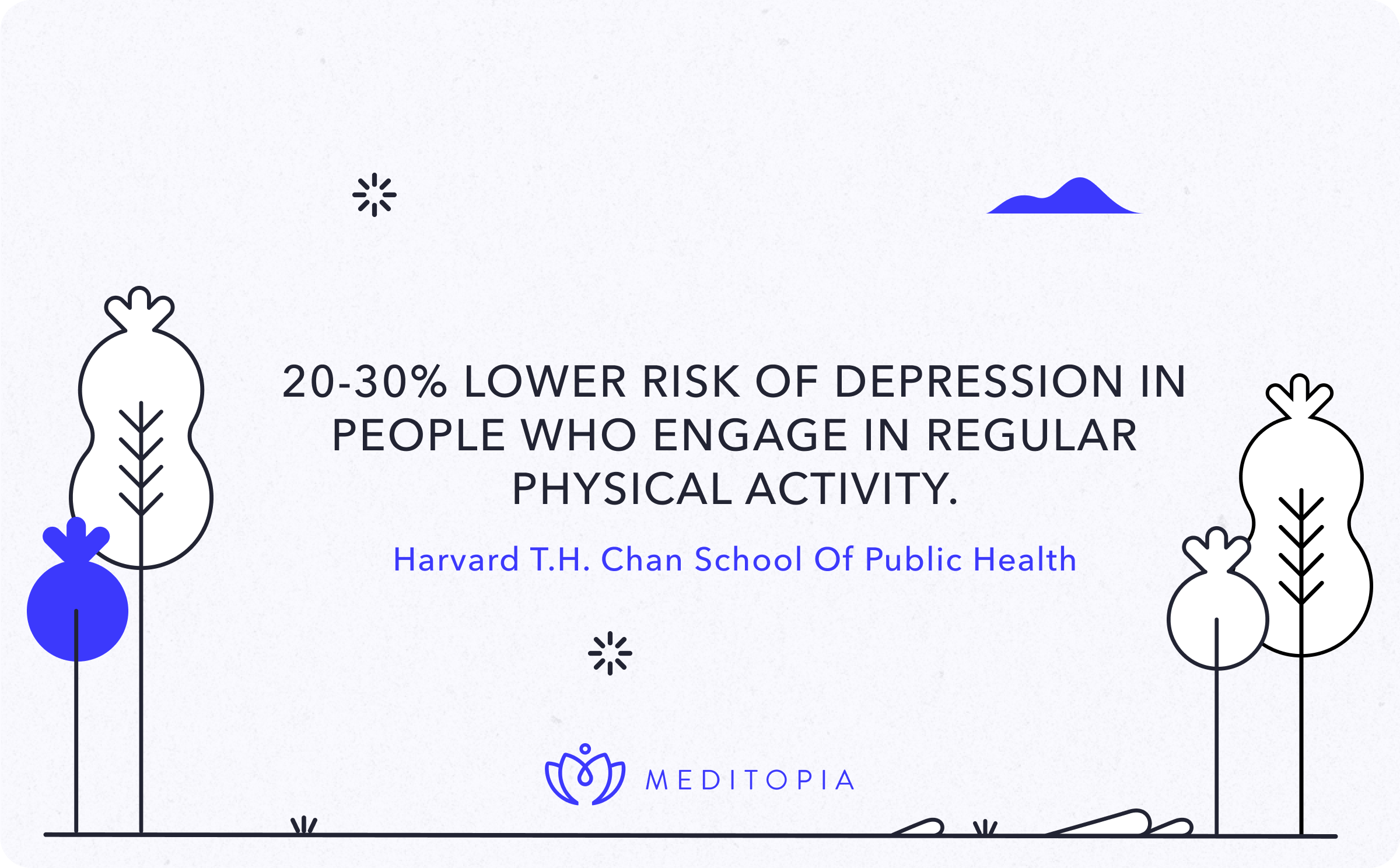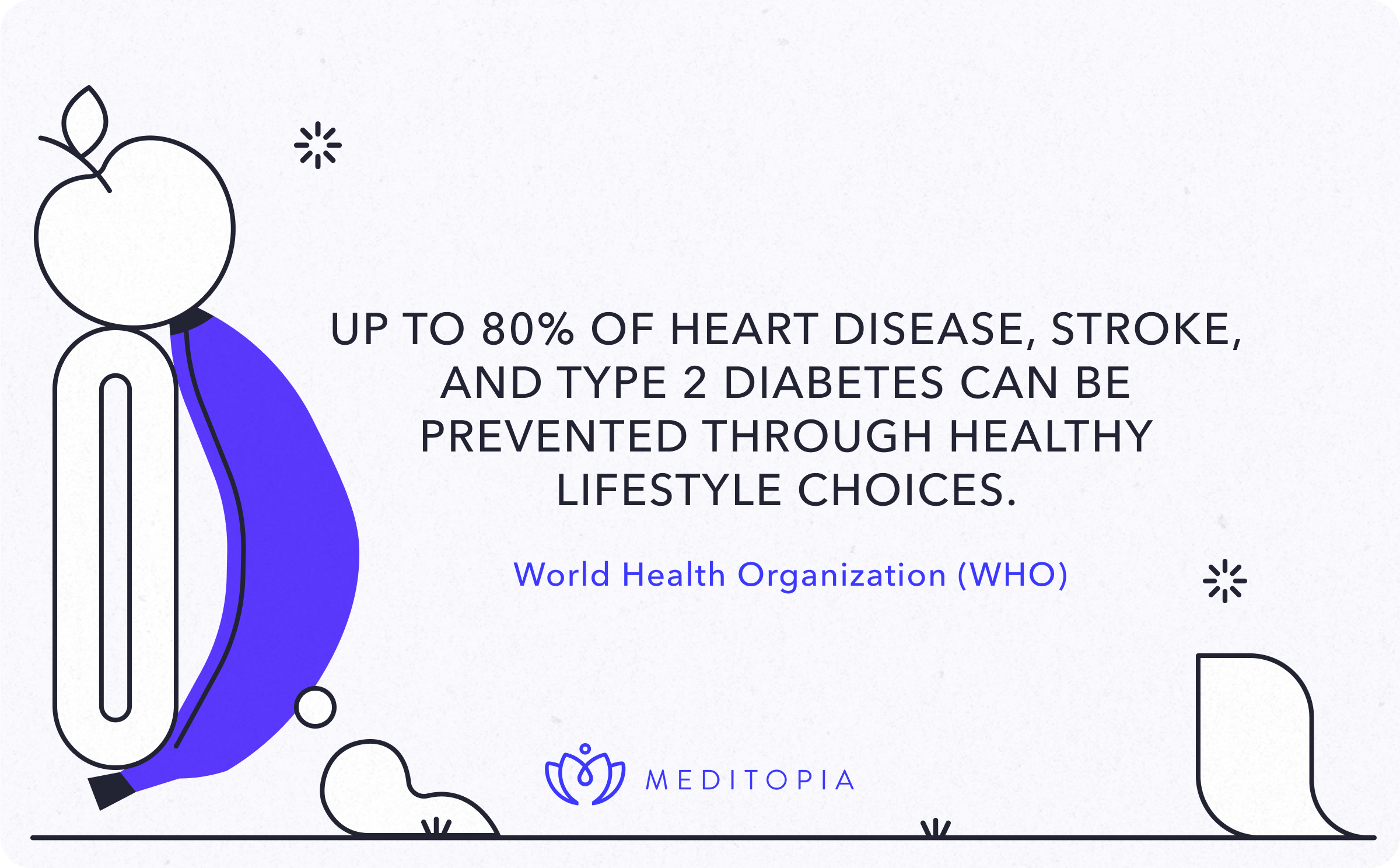Between work, family, and personal commitments, maintaining healthy habits can feel like a juggling act. But it’s possible, with the right mindset and some smart strategies. If you've ever wondered how can I be healthier without sacrificing everything else, you’re in the right place. Below, we explore practical, real-life ways to stay healthy, no detoxes, no guilt, just balance.

How to Lead a Healthy Lifestyle While Balancing Your Schedule
We all have a busy schedule, we might be studying, working, taking care of kids or relatives, taking care of our home, and so on. So, how can we fit healthy eating, exercise and meditation into our endless to-do list? If changing our routine is not easy to do, how can you still find balance? Let’s check some tips.
1. Improve Sleep Quality
- Challenges
- Late-night screen time delays your sleep cycle
- Stress keeps your mind racing when it’s time to rest
- Solutions
- Set a consistent bedtime and wind-down routine
- Avoid screens at least 30 minutes before bed; read or journal instead
- Pro Tip
Treat sleep like an unmissable appointment. Even 30 more minutes per night can improve mood, energy, and focus the next day.
2. Master Time Management
- Challenges
- Your to-do list feels endless, and health drops to the bottom
- Multitasking reduces productivity and increases stress
- Solutions
- Block time for meals, movement, and breaks just like meetings
- Focus on 3 top priorities per day instead of trying to do it all
- Pro Tip
Use the 2-minute rule: if something takes less than 2 minutes (like filling a water bottle or stretching), do it immediately.
3. Stay Hydrated Throughout the Day
- Challenges
- You forget to drink water while working or running errands
- Caffeine or sugary drinks replace hydration needs
- Solutions
- Keep a water bottle in sight and refill it regularly
- Infuse water with lemon, mint, or berries to make it more appealing
- Pro Tip
Link hydration to a routine—drink a glass of water before every meal or after every bathroom break.
4. Create a Balanced Work-Life Environment
- Challenges
- Work bleeds into personal time, leaving no room for self-care
- You feel guilty for setting boundaries
- Solutions
- Set clear work hours and unplug during evenings
- Use tech features like “Do Not Disturb” or calendar blocks for breaks
- Pro Tip
Schedule your personal time the same way you’d schedule a client call—it deserves equal importance.
5. Adopt Positive Thinking
- Challenges
- Negativity bias makes you focus on what's wrong
- Burnout affects your mindset and outlook
- Solutions
- Keep a gratitude journal or jot down three daily wins
- Limit time spent on negative news or social media
- Pro Tip
Surround yourself with positivity—books, podcasts, and people who energize you make a noticeable difference in daily mood.

6. Make Financial Wellness Part of Your Lifestyle
- Challenges
- Financial stress causes anxiety and affects overall health
- Lack of a clear budget leads to reactive, unhealthy spending
- Solutions
- Use budgeting apps or spreadsheets to track spending
- Set small savings goals for things that support your well-being (like therapy or fitness classes)
- Pro Tip
When in need, listen to the financial anxiety meditation in Meditopia's app. It can help you feel more grounded.
7. Focus on Personal Development
- Challenges
- Self-growth feels like a luxury you don’t have time for
- You don’t know where to start or what to prioritize
- Solutions
- Listen to audiobooks or podcasts while commuting or cleaning
- Choose one personal goal per month (e.g., learning a new skill, reading a book)
- Pro Tip
Pair personal development with an existing habit (e.g., stretch while listening to a podcast) to integrate it effortlessly.
8. Prioritize Nutrition Without Overcomplicating It
- Challenges
- Busy days make it easy to skip meals or grab processed snacks
- Meal prep seems time-consuming
- Solutions
- Batch-prep ingredients like grains, proteins, and chopped veggies for quick mix-and-match meals
- Stock up on nutritious grab-and-go snacks like fruit, yogurt, or nuts
- Pro Tip
Plan meals weekly! This reduces last-minute decisions and improves dietary balance over time.
9. Move Your Body, Even Briefly
- Challenges
- Long hours at a desk leave little time for exercise
- You think a workout only counts if it’s an hour long
- Solutions
- Fit in micro-movements: take the stairs, stretch during meetings, or walk while on calls
- Schedule movement breaks between tasks to reset your energy
- Pro Tip
This is not about who is stronger or who walks for longer, movement can be included in your routine differently, don't be afraid to be creative!

10. Build a Morning Routine that Sets the Tone
- Challenges
- Mornings feel rushed, and you start the day reactive
- You reach for your phone before anything else
- Solutions
- Wake up 15 minutes earlier to create a mindful start
- Begin with hydration, movement, or setting intentions for the day
- Pro Tip
Your morning doesn’t need to be long, just intentional. Even a short, quiet start can shape your mindset for the rest of the day.
11. Incorporate Mindful Moments
- Challenges
- Your day feels like a blur of tasks, leaving little room for reflection or stillness
- You feel mentally cluttered or emotionally reactive
- Solutions
- Take just 5 minutes to sit quietly and breathe—use guided meditation apps or simply focus on your inhale and exhale
- Add mindfulness to existing routines—like deep breathing while waiting in line or walking without distractions
- Pro Tip
- Listening to soft music, doing a breathing exercise, and even walking while connecting with your senses are forms of meditations. Explore, dare to try different things!
Why Is a Healthy Lifestyle Important?
Now that we just talked about intrinsical motivation, why are you trying toachieve a healthier lifestyle? It is true that, when you establish a healthy routine, you’re not just preventing illness, you’re actively enhancing every area of your life. But what exactly pushes you to this change?
While you figure that out, here are some reasons and stats that could help you start this change now:
- At least 80% of premature heart disease, stroke, and type 2 diabetes can be prevented through healthy behaviors, including proper nutrition and regular exercise [1].
- Individuals who exercised regularly had 43.2% fewer days of poor mental health compared to those who didn’t [2].
- Adults with good eating habits and sleep hygiene report significantly lower stress levels [3].
- Improving sleep for just 7 consecutive nights can significantly boost mood and alertness [4].
- Drinking enough water improves energy and focus within hours.
- Replacing one processed meal a day with whole foods lowers inflammation and boosts digestion.
The Benefits of a Healthy Lifestyle
From your immune system to your ability to focus at work, the benefits of daily healthy habits affect nearly every part of life. Below are the most impactful outcomes, backed by research:
- Regular physical activity strengthens your heart, lungs, and muscles, while improving flexibility and endurance [5].
- Exercise and self-care routines like mindfulness, journaling, and rest can reduce symptoms of depression and anxiety [6].
- Physical activity also promotes the release of brain chemicals like serotonin and dopamine, which are linked to improved mood [7].
- Good health habits like balanced nutrition, hydration, and sleep can strengthen the immune system and reduce the frequency of illness [8].
- Thoughtful meal planning can stabilize blood sugar, improve digestion, and reduce fatigue [9].

Common Mistakes to Avoid When Starting a Healthy Lifestyle
Starting fresh with better habits can be exciting, but it's easy to fall into traps that can derail progress or even harm your well-being. Here are some of the most common mistakes beginners make and how to avoid them:
- Setting Unrealistic Goals: Many people aim for drastic changes overnight—like losing 10 pounds in a week or going from zero workouts to daily sessions.
- What to do instead:
Start small and be specific. Instead of “I’ll exercise every day,” try “I’ll walk for 20 minutes three times this week.” Gradual change is more sustainable.
- What to do instead:
- Chasing Fad Diets: Diets that eliminate entire food groups or promise rapid results often lack nutritional balance and can create a cycle of restriction and bingeing.
- What to do instead:
Focus on variety, balance, and moderation. Nourishment should feel empowering, not restrictive.
- What to do instead:
- Neglecting Recovery and Sleep: Sleep is often underestimated, but it's essential for physical repair, emotional regulation, and motivation.
- What to do instead:
Prioritize consistent sleep routines and schedule rest days between workouts. Your body improves while you rest, not just while you’re active.
- What to do instead:
- Overtraining Without Structure: Jumping into intense fitness routines without guidance or progression can lead to injury, fatigue, and discouragement.
- What to do instead:
Mix different types of movement, include active recovery, and listen to your body. It’s okay to scale back or rest when needed.
- What to do instead:




















